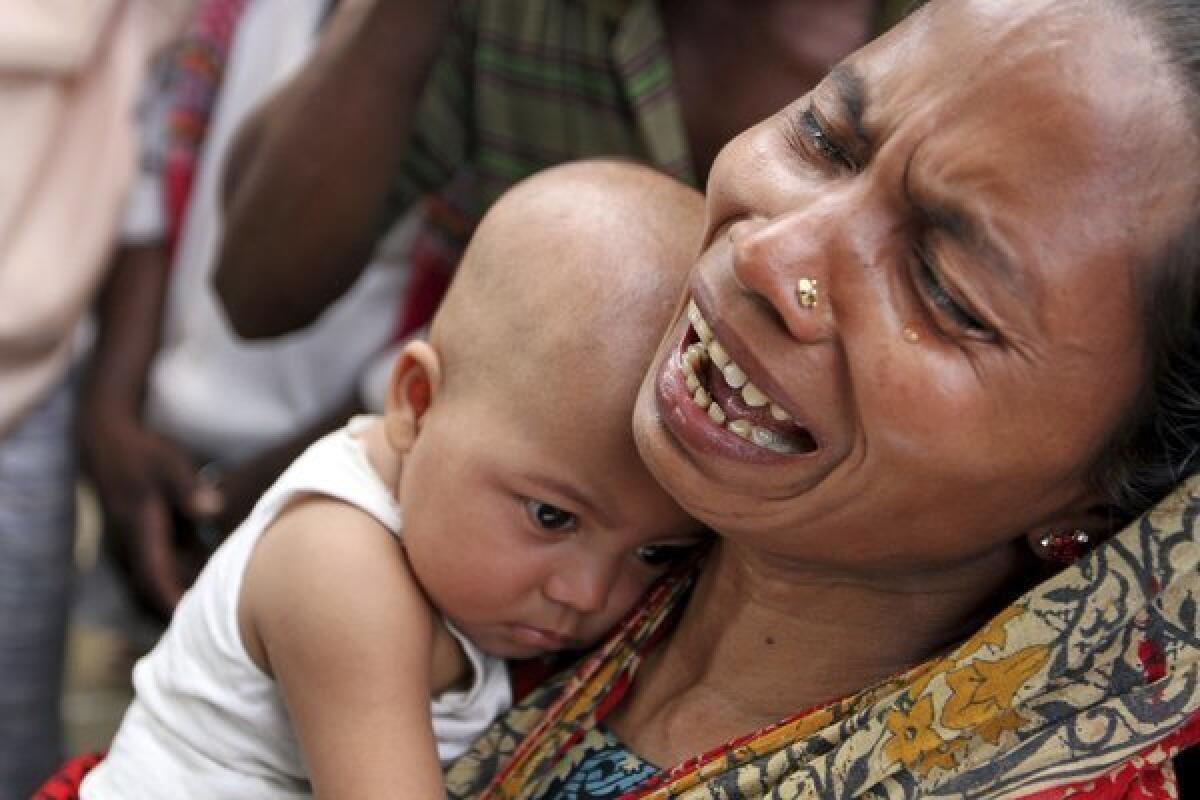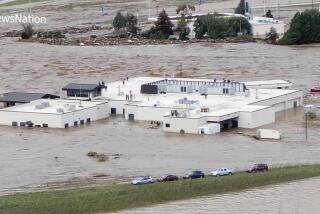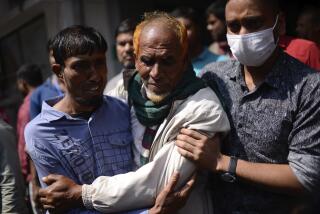Financial help pledged after Bangladesh building collapse

Bangladeshi government officials and Western apparel companies have pledged to provide financial assistance to the families of more than 1,300 people killed or injured in the collapse of the Rana Plaza building last week.
At least 388 people were killed after the building collapsed, crushing and trapping workers from five apparel factories in the multistory building. Disaster relief officials reported 968 people were hospitalized with serious injuries. Hundreds of people remained missing Tuesday, according to the Bangladesh Sangbad Sangstha national news agency.
Several companies linked to the stricken factories pledged to compensate families of the victims. British retailer Primark said assistance would include “long-term aid for children who have lost parents, financial aid for those injured and payments to the families of the deceased.” The company said it had teamed with a local nonprofit to provide food and other emergency aid after the disaster.
“We are fully aware of our responsibility,” Primark said in a statement Monday. “We urge these other retailers to come forward and offer assistance.”
The Canadian company Loblaw also said it would compensate families of victims who worked for its supplier in the Rana Plaza building. Loblaw said Monday that it was still working out the details.
Bangladesh’s Ministry of Disaster Management and Relief reported that more than 735 injured people and 333 families of the deceased had received government payments as of midday Tuesday. Prime Minister Sheikh Hasina established a relief fund to solicit more help for the victims.
Bereft families could also gain help from the bank accounts of the building and factory owners, which were reportedly frozen Tuesday. The money is supposed to be used to pay worker salaries, according to the national news agency; the Associated Press reported it was implied that families of dead victims would be paid.
The disaster refocused attention on the dangers facing workers in the booming Bangladeshi garment industry, ramping up calls for stricter regulation. Western brands whose labels were found in the wreckage faced new pressure to sign on to a safety agreement.
“Brands can no longer justify any further delay.... The lack of action demonstrated by brands amounts to criminal negligence,” Ineke Zeldenrust of the Clean Clothes Campaign said in a statement Monday.
The owner of the collapsed building, Sohel Rana, was arrested Sunday near the Indian border and is reportedly being questioned on charges that include negligence and illegal construction. Labor activists allege Rana and factory managers forced workers to go into the building despite cracking they had spotted the day before the collapse.
“We were frightened and had no choice but to go in to work,” one of the workers, Jannat, said in a statement published on the Institute for Global Labor and Human Rights website.
Trapped for hours under concrete and rubble before being freed, “I never thought that I would ever see the light of day again,” Jannat said. “I got a new second life, like a rebirth. I have decided that I will never again work in a garment factory.”
ALSO:
Six men plead guilty in Britain to planning terror attack
2 killings shatter relative calm between Israelis, Palestinians
South African ruling party criticized over video of frail Mandela
More to Read
Sign up for Essential California
The most important California stories and recommendations in your inbox every morning.
You may occasionally receive promotional content from the Los Angeles Times.










